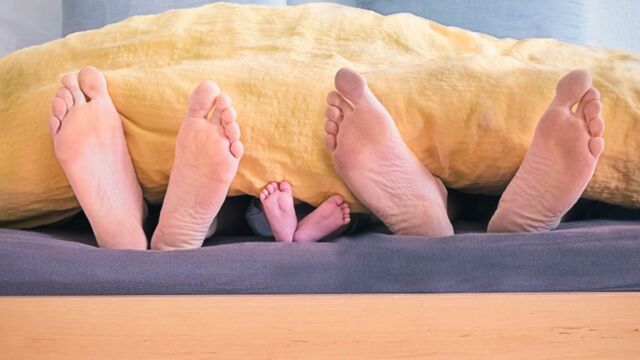Sleep is a fundamental pillar of a healthy life, and a main factor of good health. According to the French publication Institut National du Sommeil et de la Vigilance, from adulthood onwards, we are recommended to sleep 7 hours or more per night. This is advised for those between the ages of 18 and 60.
Discover our latest podcast
This recommendation for sleep duration changes a little, and becomes more precise in terms of age: between the ages of 61 and 64, 7 to 9 hours of sleep per day are recommended. From the age of 65 onwards, 7 to 8 hours a day are recommended.
However, as people start to reach their forties, the average amount of sleep they get decreases by 30 minutes every 10 years. This is due to a physiological phenomenon that takes place in the brain.
It's all in the mind....
'The brain reacts less, and loses speed as we age,' Dr. Sairam Parthasarathy, Director of the Sleep Center and Professor of Science at Arizona Health Sciences University, told Huffpost. An older person's brain willreact less quickly and less well to sunset and sunlight, to mealtimes (no feeling of hunger), and to social cues that are markers of the time and progress of day. So, for a younger person, dinnertime can help the brain understand that bedtime is a few hours away. But for an older person, this connection may not occur.
The nerves which are supposed to give the brain clues to time undergo degeneration resulting in an inability to 'perceive temporal cues', which explains why the elderly tend to tire before their children or grandchildren, and consequently go to bed and wake up earlier than everyone else.
It seems to be a natural aging process.https://t.co/sBUmApkutZ
— IFLScience (@IFLScience) September 8, 2023
... but also in the eyes
Another reason for this shift in the sleep cycle seems to be that the changes in vision that occur with age reduce the intensity of the degree of light stimulation our brains receive, which plays an important role in 'tuning' our circadian clock and keeping it on track
Cindy Lustig, professor of psychology at the University of Michigan, told Huffpost.
According to Dr. Sairam Parthasarathy, this is especially true for people suffering from cataracts, a progressive opacification of the crystalline lens inside the eye. This eye disease affects more than half of all people over 65, and more than two-thirds of those over 75, regardless of gender.
According to the NHS, signs of cataracts include blurred eyesight, sensitivity to light, difficulty seeing in low light, and colours seeming faded.
This article has been translated from Gentside FR.
Read more:
⋙ This simple trick will help you sleep better and improve your cognitive skills
⋙ This man triggered a Reddit debate: Is it weird to sleep in the same bed with a parent as an adult?
Sources used:
Institut National du Sommeil et de la Vigilance
IFL Science: Why Do Adults Wake Up Earlier As They Get Older?
Huffpost: Why You Wake Up Earlier As You Get Older















